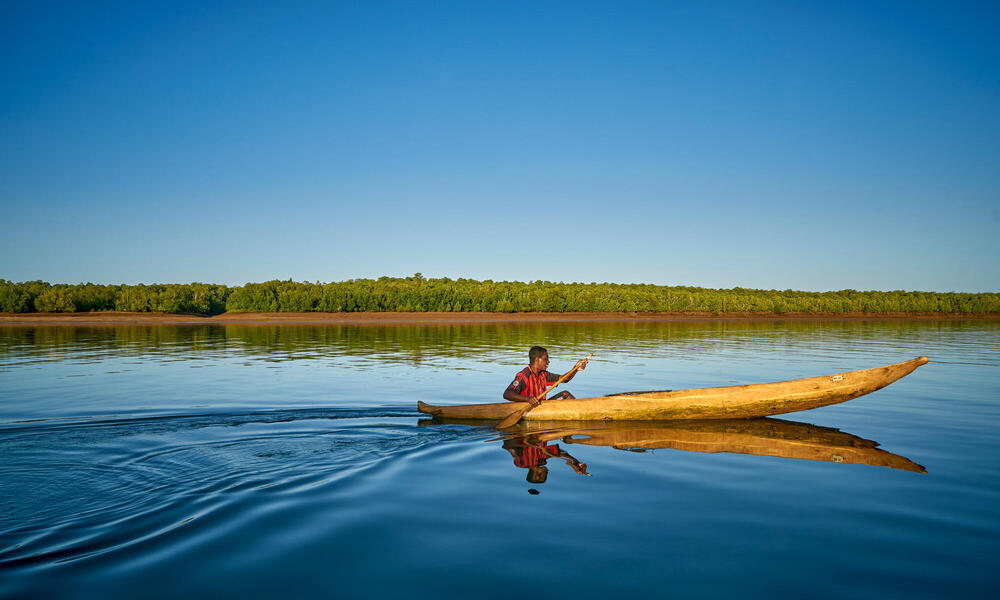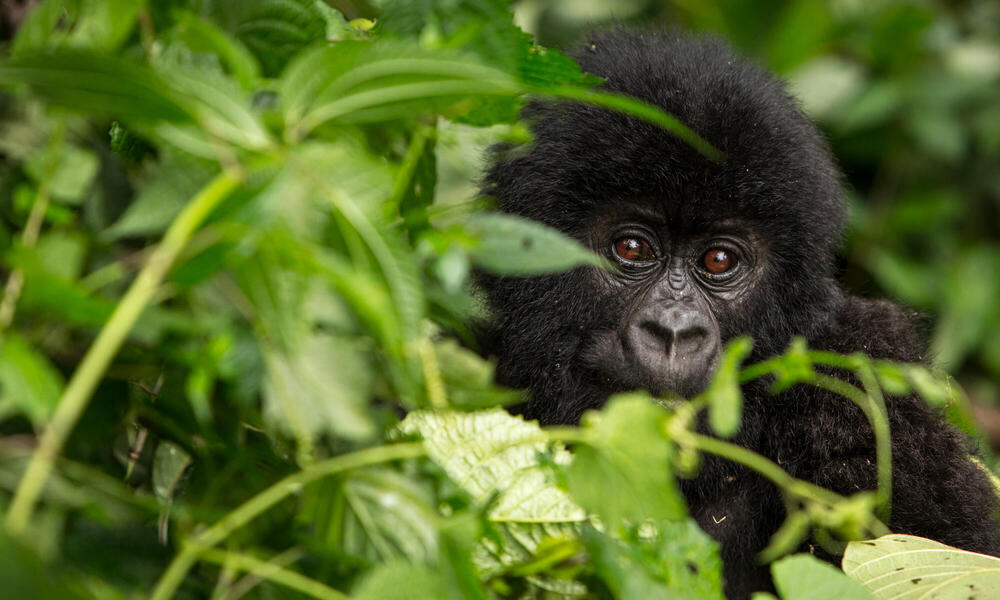The Alliance for Conservation Evidence and Sustainability
The Alliance for Conservation Evidence and Sustainability (ACES) is a voluntary network of conservation non-governmental organizations committed to improving conservation monitoring, evaluation, and learning. Operating as a formal collaborative between 2016 and 2022, ACES developed tools to inform the generation, synthesis, and use of evidence to improve community-based conservation and conservation decision-making.
A Shared Approach
Monitoring and research on community-based conservation is not always used to inform conservation decision-making. To address this, ACES developed a conceptual framework designed to bridge social science theory, research, and monitoring and evaluation. This framework links three foundational theories to inform a more systematic approach to researching and monitoring community-based conservation. ACES partners also collaborated to develop tools and methods to help enable the effective establishment, persistence, and scaling of community-based conservation.
Learning Projects
Catalyzing Effective Community-based Conservation
ACES facilitated a series of learning projects that enabled the co-production of knowledge between researchers, practitioners, and staff from different conservation and development organizations. These learning projects, outlined below, created collaborative forums for identifying shared research and learning priorities, testing new methods and approaches, and answering real-world and policy-relevant questions.
Evaluating the CARE-WWF Alliance in Mozambique
In 2008, the CARE-WWF Alliance emerged as a major strategic partnership between two international non-governmental organizations seeking to tackle the linked challenge of poverty and natural resource degradation. The flagship project in Primeiras e Segundas, Mozambique—the first environmental protected area in the country in 2012—sought to advance three key objectives: healthy livelihoods, healthy ecosystems; empowered citizens; and supportive policies and institutions. This involved implementation of conservation and development interventions, often in the same communities.
After 10 years, this learning project was co-designed between scientists and project leads to answer two main questions: What are the social impacts of natural resource management in Primeiras e Segundas? How do impacts vary between those who participated in conservation interventions, development interventions, both, or neither?
Catalyzing conservation at scale in Fiji, Madagascar, and beyond
Despite billions of dollars invested, we still struggle to match the scale of our initiatives with the ever-increasing scale of environmental problems. However, there are instances where conservation initiatives achieve rapid or widespread adoption, with the potential to transform the relationship between people and nature across large scales. Understanding how and why an initiative scales is essential to crafting policies and practices that are effective on multiple levels. Through a series of comparative case studies and global synthesis, this learning project made major conceptual advances in building a theory of conservation dynamics that identifies the factors that catalyze conservation at scale.
Factors of success in community forest conservation
Though the world's forests today cover a small proportion of their historical extent, they still play an outsized role in regulating climate and moderating hydrological systems. So how best do we conserve what is left of this vital resource? This learning project, focused on community-based forest conservation, explored how relevant predictions from two theories (Olson, 1965; Ostrom, 1990) underpin, either implicitly or explicitly, the design and implementation of community-based conservation efforts.
Understanding the governance and impacts of MPAs in Indonesia
The Bird’s Head and Sunda-Banda Seascapes in Eastern Indonesia are the global epicenter of marine biodiversity and have drawn millions of dollars of investment from the international donor community to promote conservation efforts. This learning project focused on synthesizing existing MPA monitoring data from Indonesia to generate insights into the processes shaping the social and ecological impacts of MPAs.
Community forests in Indonesia
With their distinctive ecologies, cultural dynamics, and livelihood strategies, the provinces of Jambi and Papua in Indonesia have a long and rich history of adapting their community-based forest resource management practices to navigate a multitude of changes and challenges. This learning project explored the factors that influence the resilience of forest-dependent communities in Jambi and Papua, Indonesia, and how these communities are cultivating resilience in the face of a changing planet.
Empowerment and management effectiveness in coastal East Africa
Catalyzing collective action for conservation relies on a shared perception among members of a community that management actions are achieving their stated goals. As a result, understanding the underlying factors driving differences in perceptions of management effectiveness can help those implementing conservation prioritize the things that are most valued by resource users. This learning project leveraged existing survey data and machine learning to identify the factors most strongly associated with differences in perceived management effectiveness between resource users engaged in marine community-based conservation programs in Kenya and Tanzania.
The Science of Decision-Making
To improve monitoring, evaluation, and learning practices in conservation, ACES explored how decision-makers working across different sectors define and use evidence in organizational decision-making. Through our research and learning series, we explore how different perceptions as to what counts as evidence shapes its use, and many factors that shape how we make decisions (consciously or unconsciously) that can enable or hinder the use of evidence in practice.



 Shauna Mahajan
Lead Social Scientist, Global Science
Shauna Mahajan
Lead Social Scientist, Global Science
 Sam Cheng
Director of Conservation Evidence, Global Science
Sam Cheng
Director of Conservation Evidence, Global Science
 Gabby Ahmadia
Vice President, Area-Based Conservation, Oceans
Gabby Ahmadia
Vice President, Area-Based Conservation, Oceans
 Nasser Olwero
Director of Information Science, Global Science
Nasser Olwero
Director of Information Science, Global Science
 Dominic Andradi-Brown
Lead Marine Conservation Scientist
Dominic Andradi-Brown
Lead Marine Conservation Scientist
 Althea Skinner
Director, Inclusive Conservation - Impact, Learning, and Partnerships
Althea Skinner
Director, Inclusive Conservation - Impact, Learning, and Partnerships